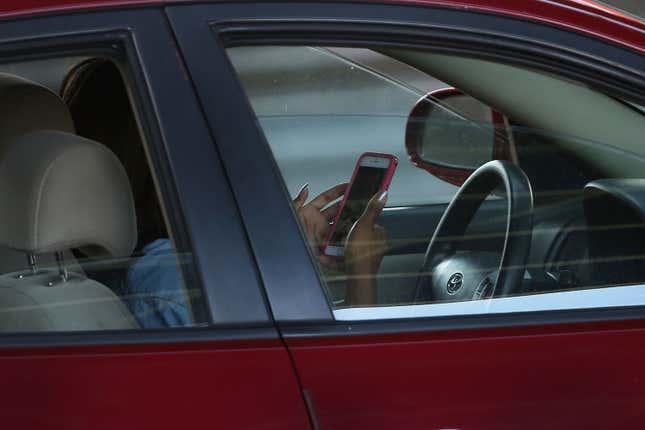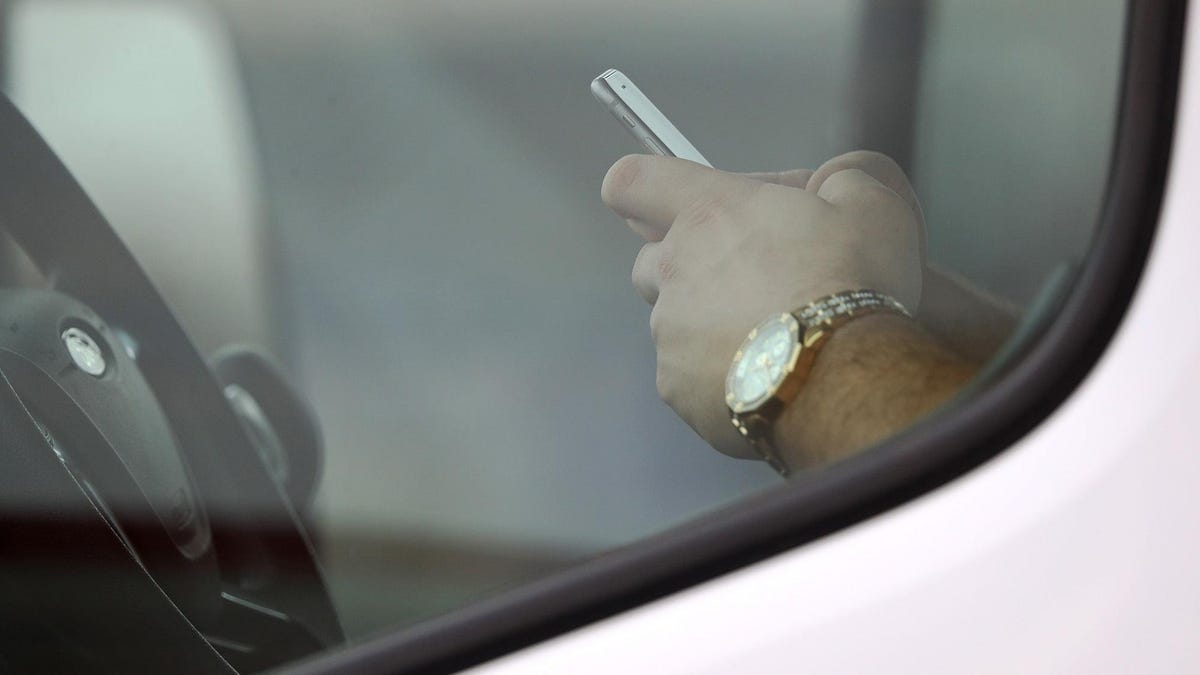The global pandemic has given way to another pandemic in America, where distracted driving is causing thousands of deaths on public roads and shows no signs of abating. New data shows the COVID-19 pandemic led to an increase in distracted driving specifically involving cell phone use in cars, which surged by 20 percent between 2020-2022, and has failed to decrease to pre-pandemic levels, according to Vox.
A small percentage of road fatalities have been linked to distracted driving recently, and even less fatalities were officially caused by phone use in the car. Experts now say the official numbers misrepresent what’s happening on U.S. roadways, and increased phone use almost certainly corresponds with the increase in fatalities. That much has been proven by a tech company that works with major auto insurers, as Vox explains in a detailed report:
The government estimates that 3,522 people died because of it in 2021, but experts say the official number probably majorly undercounts the number of deaths, in part because police are rarely able to definitively prove that a driver was distracted right before a crash.
Cambridge Mobile Telematics is a company that partners with major insurance companies to offer downloadable apps that drivers can use to save money on their rates. Via the apps, Cambridge Mobile Telematics (CMT) uses mobile phone sensors to measure driving behavior, including whether a person is speeding, holding their phone, or interacting with an unlocked screen while driving (the company says it doesn’t collect information on what the drivers are doing on their phones). Its work gives the company insight into the driving behaviors of more than 10 million people.
CMT recently analyzed driver behavior during millions of car trips. What it found should be troubling to anyone who uses a road in the US: During the pandemic, American drivers got even more distracted by their phones while driving. The amount of distracted driving hasn’t receded, even as life has mostly stabilized.
The company found that both phone motion and screen interaction while driving went up roughly 20 percent between 2020-2022. “By almost every metric CMT measures, distracted driving is more present than ever on US roadways. Drivers are spending more time using their phones while driving and doing it on more trips. Drivers interacted with their phones on nearly 58% of trips in 2022,” a recent report by the company concludes. More than a third of that phone motion distraction happens at over 50 mph.
Go read the entire report at Vox, which lays out the statistics and their probable cause in greater detail. It’s worth a read for anyone that regularly travels on U.S. roads, where cell phones are a harmful vice for drivers that many nonetheless accept as inevitable. The report describes how that is not really the case, and the U.S. is an outlier among first-world countries, many of which are not facing the same issues. Per Vox:
We’re also spending nearly three times more time distracted by our phones than drivers in the United Kingdom and several other European countries. US drivers spent an average of 2 minutes 11 seconds on their phones per hour while driving, compared to 44 seconds per hour for UK drivers, CMT found. The company compared the driving behaviors of US and European drivers because road fatalities in the United States surged during the pandemic and European fatalities did not. In 2020, 38,824 people died on US roads. In 2021, that number rose to 42,915 people,and the highest number of pedestrians were killed in 40 years.
Notice the 40-year high of pedestrian fatalities recorded in the U.S. happened in 2021, right in the middle of the two-year surge in cell phone use between 2020-2022. The report explains that this looks to be a uniquely American problem:
“The way individuals are driving their vehicles in the US is distinct from the way they’re driving in Europe,” says Ryan McMahon, senior vice president of strategy for Cambridge Mobile Telematics. That extra time Americans are spending on their phones while driving increases risk: In more than a third of crashes the company analyzed, McMahon says, the driver had their phone in their hand a minute prior to collision.
The large increase in risky driving behaviors in the US started basically as soon as the pandemic began. “We saw this incredible increase in distracted driving. You could almost track it by the day schools started to shut down,” McMahon says. “When mobility changed, risk increased dramatically.”
Since America is more given to car culture than other places, experts suggest that the problem is likelier to impact us. But their theories go beyond culture and rely on behavioral analyses, as well as taking a look at our infrastructure:
The most compelling theories, though, are structural and psychological. In the United States, infrastructure is built around cars, and Americans generally have fewer public transportation options than Europeans do. They spend more time in their cars, commuting, doing chores, and taking children to school than people in European countries, and they are far more likely to make these daily trips on roads that are straight, flat, and built for easy car travel: a perfect recipe for boredom.*
Overall, the proof that the new CTM data provides into the relationship between cell phone use in the car and road fatalities is damning. It’s good empirical evidence that it’s not just you. Roads did become way more unsafe after the pandemic, and a lot of it has to do with people using their cell phones in the car.


